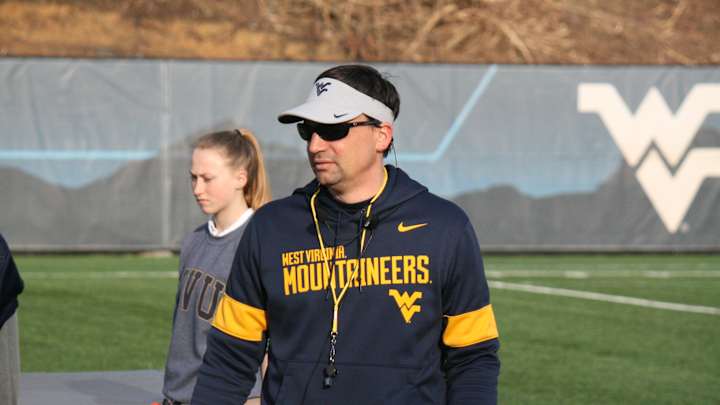Neal Brown Gives Insight on how the Mountaineers are Operating

Like the rest of us, the West Virginia football program is adjusting to the new social distancing rules that have been put in place by federal and state officials.
One of the issues the program faced was getting players transitioned and enrolled in online classes following the closures of campuses nationwide.
“Our online classes have begun. A lot of credit to our academic staff led by Brittney O’Dell,” said head coach Neal Brown. “They’ve done a tremendous job, and credit to our players. They’ve really responded in the proper manner and we’re off and rolling with the academic piece and I think we’ll have another solid semester.”
Since the Big 12 Conference announced that all team activities will be suspended through May 31, conference officials have issued guidelines to all its members giving coaches the opportunity to hold virtual football meetings.
“The health and wellness of our players is still the top priority, but we’ve begun to institute the four hours of allowable football meetings during this time,” said Brown. “We can’t monitor workouts, but Mike Joseph and the strength and conditioning staff have been in contact with our players and they’re giving them workouts. Those workouts are really determined on what they have to use. Some people have access to a full gym. Some of them have home gyms. Some of them only have bands and body weights and those types of things. All the workouts are a little bit different depending on the space and what they have to use.”
“We’ve been working to maintain good nutritional habits,” continued Brown. “Those are led by our director of sports nutrition Farrell Frankel and Vince Blankenship, our head athletic trainer and his staff, they continue to monitor our rehab guys. We have a couple of guys coming back from shoulders and two knees. So, they continue to monitor those guys and doing those virtually.”
Another point of emphasis is creating everyday habits so whenever players return to campus, they’ll be ready.
“Our focus with our players has really been to establish a routine,” said Brown. “A daily routine Monday through Friday that centered around academics. Football meetings with their position coach. We meet twice a week as a team. Getting three meals a day. Doing their workout. We recommend some football position drills, we can’t monitor those either, but we give them recommendations on things they can do fundamentally,” added Brown. “And really, that’s kind of what their day looks like, but I think it's really important during this time is to establish a routine. They’re on their own. They’re away from the monitoring that we would normally have - the structure that we would normally have. So, we’ve been encouraging them to create their own daily routine. And then, really trying to establish pure accountability.”
“What we’re doing is, we’re basically doing a daily check-in at 10:00 am eastern. And so, on Tuesday and Thursday, we do team meetings. On Monday, Wednesday and Friday we do position meetings,” later added Brown. “And so, those are the only times we’re dictating when the coaches meet with them. They have four hours; we have to chart those for compliance reasons. And so, we’re doing full position meetings three times a week, and those are usually between 30 and 45 minutes. And then, the position coach has the latitude to meet either in small groups or one on one to use the rest of the time.”
The coaching staff not being able to observe workouts or drills makes it impossible to see what progress the players are making. However, since Neal Brown stepped in Morgantown, he put in place accountability teams in the offseason for players to push one another.
Of course, this is a challenge without the team being together but Brown sees this as an opportunity to mature quicker than he expected and it's up to the players to stay physically and mentally prepared.
“So, we’re trying to do it in two different ways. Position groups, which you’re with a lot of the times. Those are usually really close – you’re really close with those guys in your position groups. The second type of accountability is our accountability teams, that we do, that runs from January through right up into the first day of fall camp. So, we’re trying to do that in two measures.
“I think in long term it will be beneficial, continued Brown. “It’s forcing us to be a player-led team rather than a coach-led team at this point. I probably wouldn’t have thought we were ready for that, so we’ve had to push the accelerator on that. So, I do think long term it will be positive.”

Member of the Football Writers Association of America, U.S. Basketball Writers Association and National Collegiate Baseball Writers Association.